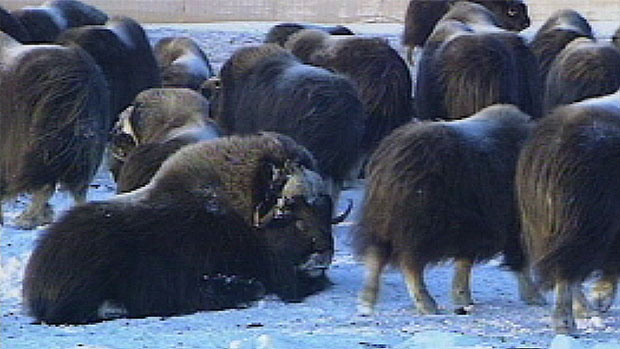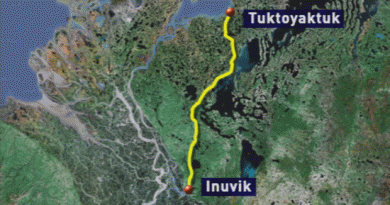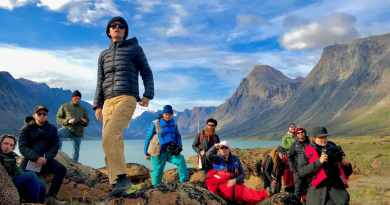Musk ox sighted in northern Alberta
 Unclear why animal travelled so far south from usual habitat
Unclear why animal travelled so far south from usual habitat
Musk oxen appear to be moving further south as one was spotted recently in northern Alberta.
Staff at the Andrew Lake Lodge at the Northwest Territories-Alberta border were shocked to find the large animal near one of their cabins on June 10.
The long-haired mammals are usually found in the northern tundra regions of Canada, Greenland and Alaska.
Lodge owner Dan Wettlaufer said, at first, staff members didn’t know what they were seeing.
“They first saw a large animal in the heavy cover of the spruce trees,” he said. “You know, thought perhaps it was a moose and then as it came a little closer out, it didn’t look like much of a moose and then thought maybe it could be a bison — we are close to the Wood Buffalo National Park.
“Then, as it actually stepped out and turned it head, we could see it wasn’t a moose and it wasn’t a bison and it was actually a musk ox,” he said.
Wettlaufer said the animal has been grazing on grass and other vegetation in the area.
A couple of camp dogs rushed over to see the animal on the first day the animal was spotted, he said.
]”I think it’s the first time they met some dogs of this variety anyhow, so they had a little scuff-up in the trees and the musk ox charged at them and pushed them out,” he said.
“Dust was flying and the dogs are retreating…lots of excitement for all involved and luckily no one had any injuries to bear from it,” he said.
Wettlaufer said it’s the furthest south the animals have been seen in Alberta.
As musk oxen are herd animals, there could be more in the area, he said.
It’s unclear why the animal travelled so far out of its usual habitat, but they do seem to be migrating into the tree line. Last year, a herd was spotted near Fort Resolution, N.W.T., south of Great Slave Lake.
Biologists hope to get a closer look at the animal this weekend.
For more stories from CBC News, click here



